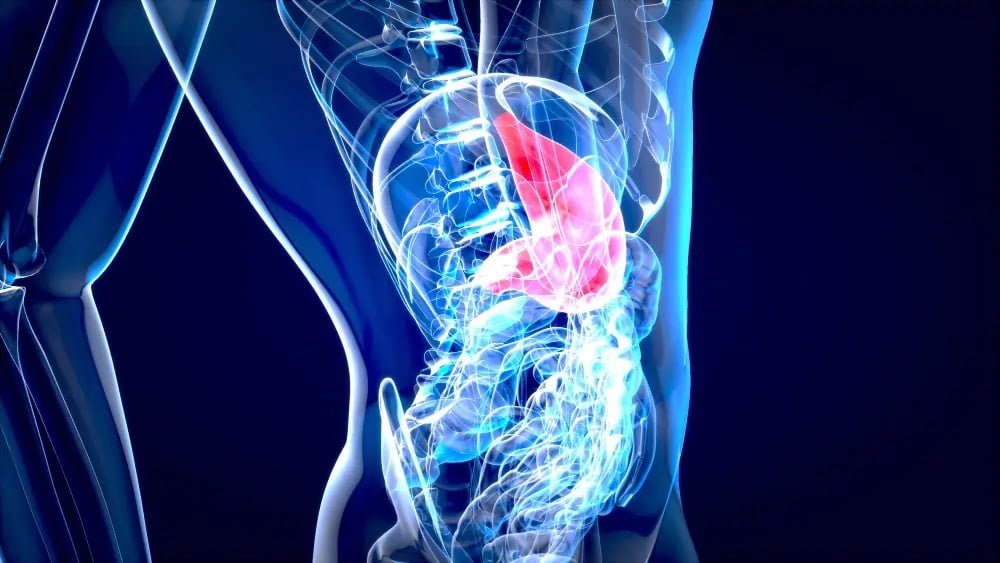Do you often feel sleepy or drowsy after eating a meal? If so, you might wonder if this is a normal reaction or a sign of diabetes. The answer is not so simple, as many factors can affect how you feel after eating, including what you eat, how much you eat, and your overall health.
How does eating affect your blood sugar levels?
One of the main reasons why you may feel sleepy after eating is because of how eating affects your blood sugar levels. When you eat, your body breaks down the carbohydrates in your food into glucose, which is the main source of energy for your cells. Glucose enters your bloodstream and triggers your pancreas to release insulin, a hormone that helps your cells absorb glucose and use it for energy.
However, if you eat too much, too fast, or too many foods that are high in sugar or refined carbohydrates, such as white bread, pasta, rice, or sweets, your blood sugar levels may spike and then drop rapidly. This can cause a feeling of fatigue, drowsiness, or sluggishness, as your body tries to balance your blood sugar levels. This is known as reactive hypoglycemia or postprandial hypoglycemia, and it can happen to anyone, regardless of whether they have diabetes or not.
How does diabetes affect your blood sugar levels?

Diabetes is a chronic condition that affects how your body regulates your blood sugar levels. There are two main types of diabetes: type 1 and type 2. In type 1 diabetes, your immune system destroys the cells in your pancreas that produce
insulin, so you need to take insulin injections or use an insulin pump to control your blood sugar levels. In type 2 diabetes, your body becomes resistant to insulin, or your pancreas does not produce enough insulin, so you need to take medication, follow a healthy diet, and exercise regularly to manage your blood sugar levels.
People with diabetes may experience fluctuations in their blood sugar levels, which can cause symptoms such as fatigue, thirst, hunger, frequent urination, blurred vision, tingling or numbness in the hands or feet, and slow healing of wounds. These symptoms can occur at any time of the day, not just after eating. However, eating certain foods, especially those that are high in sugar or carbohydrates, can cause your blood sugar levels to rise too high (hyperglycemia) or drop too low (hypoglycemia), which can also make you feel tired or sleepy.
How can you prevent feeling sleepy after eating?
Feeling Sleeping after eating is not always a sign of diabetes, but it can indicate that your diet or lifestyle needs some improvement. Here are some tips to help you prevent feeling sleepy after eating and keep your blood sugar levels stable:
- Choose foods that are low in sugar and high in fiber, protein, and healthy fats, such as vegetables, fruits, nuts, seeds, beans, lentils, eggs, fish, poultry, or lean meat. These foods can help you feel fuller for longer and provide
a steady source of energy for your body.
- Avoid or limit foods that are high in sugar or refined carbohydrates, such as white bread, pasta, rice, pastries, cakes, cookies, candy, soda, juice, or alcohol. These foods can cause rapid increases and decreases in your blood
sugar levels, which can affect your mood, energy, and appetite.
- Drink plenty of water and stay hydrated, as dehydration can cause fatigue, headaches, and poor concentration.
- Exercise regularly, as physical activity can help lower your blood sugar levels, improve your insulin sensitivity, boost your metabolism, and enhance your mood and energy.
- Get enough sleep, as lack of sleep can impair your blood sugar regulation, increase your appetite, and reduce your alertness and performance.
When should you see a doctor?
Feeling sleepy after eating is not necessarily a cause for concern, but if you experience persistent or severe fatigue or other symptoms that may indicate diabetes, such as increased thirst, hunger, urination, blurred vision, or slow healing of wounds, you should see your doctor for a check-up. Your doctor can perform a blood test to measure your blood sugar levels and diagnose if you have diabetes or not. If you do have diabetes, your doctor can prescribe the appropriate treatment and help you manage your condition.
Conclusion: Is Falling Asleep After Eating a Sign of Diabetes
Feeling sleepy after eating can be a normal reaction to digestion, especially if you eat a large or carbohydrate-rich meal. However, sometimes falling asleep after eating can be a sign of diabetes, a chronic condition that affects how your body regulates your blood sugar levels. Diabetes can cause fluctuations in your blood sugar levels, which can lead to fatigue and drowsiness. To prevent feeling sleepy after eating and keep your blood sugar levels stable, you should eat smaller, more frequent meals, choose low-sugar and high-fiber foods, avoid or limit high-sugar and refined-carbohydrate foods, drink plenty of water, exercise regularly, and get enough sleep. If you have any symptoms that may indicate diabetes, you should see your doctor for a diagnosis and treatment.
FAQs
Q: What is diabetes and how does it affect blood sugar levels?
A: Diabetes is a chronic condition that occurs when the body cannot produce or use insulin effectively. Insulin is a hormone that helps the cells absorb glucose, which is the main source of energy for the body. Without insulin, glucose stays in the blood and causes high blood sugar levels, which can lead to various health problems.
Q: Why do some people feel sleepy after eating?
A: Feeling sleepy after eating can be a normal reaction to digestion, especially if the meal is large or high in
carbohydrates. Carbohydrates are broken down into glucose, which enters the bloodstream and triggers the release of insulin. This can cause a spike and then a drop in blood sugar levels, which can affect mood, energy, and
appetite.
Q: How can falling asleep after eating be a sign of diabetes?
A: Falling asleep after eating can be a sign of diabetes in some cases because diabetes can cause fluctuations in
blood sugar levels that can lead to fatigue and drowsiness. People with diabetes may experience high blood sugar levels (hyperglycemia) or low blood sugar levels (hypoglycemia) after eating, depending on the type and amount of
food they consume, the medication they take, and their physical activity. These conditions can cause symptoms such as thirst, hunger, frequent urination, blurred vision, tingling or numbness in the hands or feet, and slow healing of
wounds.
Q: How can I prevent feeling sleepy after eating and keep my blood sugar levels stable?
A: There are some steps you can take to prevent feeling sleepy after eating and maintain healthy blood sugar levels,
such as:
Eat smaller, more frequent meals throughout the day, rather than large, heavy meals that can overload your
digestive system and cause blood sugar spikes and crashes.
Choose foods that are low in sugar and high in fiber, protein, and healthy fats, such as vegetables, fruits, nuts,
seeds, beans, lentils, eggs, fish, poultry, or lean meat. These foods can help you feel fuller for longer and provide a steady source of energy for your body.
Avoid or limit foods that are high in sugar or refined carbohydrates, such as white bread, pasta, rice, pastries,
cakes, cookies, candy, soda, juice, or alcohol. These foods can cause rapid increases and decreases in your blood sugar levels, which can affect your mood, energy, and appetite.
Drink plenty of water and stay hydrated, as dehydration can cause fatigue, headaches, and poor concentration.
Exercise regularly, as physical activity can help lower your blood sugar levels, improve your insulin sensitivity, boost your metabolism, and enhance your mood and energy.
Get enough sleep, as lack of sleep can impair your blood sugar regulation, increase your appetite, and reduce your alertness and performance.
Q: When should I see a doctor if I feel sleepy after eating?
A: Feeling sleepy after eating is not necessarily a cause for concern, but if you experience persistent or severe fatigue or other symptoms that may indicate diabetes, such as increased thirst, hunger, urination, blurred vision, or slow healing of wounds, you should see your doctor for a check-up. Your doctor can perform a blood test to measure your blood sugar levels and diagnose if you have diabetes or not. If you do have diabetes, your doctor can prescribe the appropriate treatment and help you manage your condition.






 Afrikaans
Afrikaans Albanian
Albanian Amharic
Amharic Arabic
Arabic Armenian
Armenian Azerbaijani
Azerbaijani Basque
Basque Belarusian
Belarusian Bengali
Bengali Bosnian
Bosnian Bulgarian
Bulgarian Catalan
Catalan Cebuano
Cebuano Chichewa
Chichewa Chinese (Simplified)
Chinese (Simplified) Chinese (Traditional)
Chinese (Traditional) Corsican
Corsican Croatian
Croatian Czech
Czech Danish
Danish Dutch
Dutch English
English Esperanto
Esperanto Estonian
Estonian Filipino
Filipino Finnish
Finnish French
French Frisian
Frisian Galician
Galician Georgian
Georgian German
German Greek
Greek Gujarati
Gujarati Haitian Creole
Haitian Creole Hausa
Hausa Hawaiian
Hawaiian Hebrew
Hebrew Hindi
Hindi Hmong
Hmong Hungarian
Hungarian Icelandic
Icelandic Igbo
Igbo Indonesian
Indonesian Irish
Irish Italian
Italian Japanese
Japanese Javanese
Javanese Kannada
Kannada Kazakh
Kazakh Khmer
Khmer Korean
Korean Kurdish (Kurmanji)
Kurdish (Kurmanji) Kyrgyz
Kyrgyz Lao
Lao Latin
Latin Latvian
Latvian Lithuanian
Lithuanian Luxembourgish
Luxembourgish Macedonian
Macedonian Malagasy
Malagasy Malay
Malay Malayalam
Malayalam Maltese
Maltese Maori
Maori Marathi
Marathi Mongolian
Mongolian Myanmar (Burmese)
Myanmar (Burmese) Nepali
Nepali Norwegian
Norwegian Pashto
Pashto Persian
Persian Polish
Polish Portuguese
Portuguese Punjabi
Punjabi Romanian
Romanian Russian
Russian Samoan
Samoan Scottish Gaelic
Scottish Gaelic Serbian
Serbian Sesotho
Sesotho Shona
Shona Sindhi
Sindhi Sinhala
Sinhala Slovak
Slovak Slovenian
Slovenian Somali
Somali Spanish
Spanish Sundanese
Sundanese Swahili
Swahili Swedish
Swedish Tajik
Tajik Tamil
Tamil Telugu
Telugu Thai
Thai Turkish
Turkish Ukrainian
Ukrainian Urdu
Urdu Uzbek
Uzbek Vietnamese
Vietnamese Welsh
Welsh Xhosa
Xhosa Yiddish
Yiddish Yoruba
Yoruba Zulu
Zulu